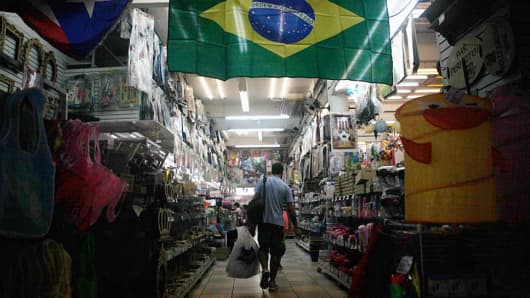Brazil still faces considerable challenges – not least the ability of Rousseff's successor, Michel Temer, to slash a primary fiscal deficit of over 2 percent of GDP. Pushing through much-needed structural reforms and revamping the notoriously convoluted tax system will be complicated in a highly-fragmented congress. Though immensely disruptive today, the resulting institutional strengthening could be a major long-term benefit for Brazil.
The central bank highlighted fiscal consolidation as a critical factor enabling it to cut interest rates, so setbacks on the political front could extend to monetary policy.
Though Temer's popularity levels are as low as his predecessor's, he is expected to be more adept at marshaling support. He may eventually benefit from early signs the economic contraction may finally have bottomed.
Business sentiment, which is strongly correlated with economic activity, has improved markedly, while investment picked up in the second quarter after nine consecutive quarters of decline. Inflation should ease further, helped by the real's rally and declining food prices. The unemployment rate, however, remains stuck at nearly 12 percent , the highest level in a dozen years.
The very fact that domestic factors are likely to be the key drivers of performance is another reason why we think Brazil remains attractive: it is an idiosyncratic opportunity in a universe of highly correlated assets. It is ambitious to hope to replicate the extraordinary gains of early 2016, but attractive total returns might still be possible over the coming year.


